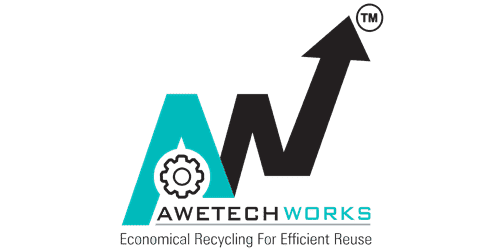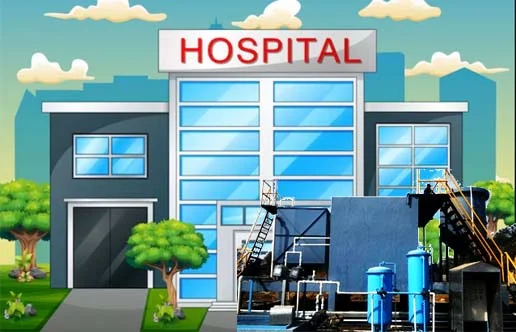


ETP Installation
400+
Waste Water Treated Per Day
70 MLD
Inhouse Manufacturing
Yes
Mega Project
45 MLD ETP at L&T Ludhiana
Effluent Treatment Plant – ETP for Hospitals
Pricing Starts from Rs. 120000
| Capacity | Customizable based on hospital size and requirements |
| Treatment Technique | Biological, chemical, and physical processes. |
| Inlet Flow Rate | Variable depending on the size and capacity of the hospital. |
| Water Source | Wastewater from medical procedures, laboratories, and sanitation facilities. |
| Automation Grade | Automatic with manual override for control and monitoring. |
| Operation & Maintenance Support | Available from specialized technicians and engineers. |
| Industries We Servee | Healthcare and medical facilities. |
| Turnkey Project with Civil | Yes, including civil engineering for infrastructure. |
| Government Compliances & Approval | Compliance with local regulations and environmental standards. |
Comprehensive Treatment : Addresses a wide range of contaminants, including biological pathogens and chemical pollutants.
Pathogen Removal : Ensures the removal of harmful pathogens to prevent the spread of infections.
Chemical Neutralization : Neutralizes hazardous chemicals and pharmaceutical residues present in medical wastewater.
Effluent Quality Monitoring : Continuous monitoring of effluent quality to ensure compliance with regulatory standards.
Emergency Response : Built-in protocols for handling emergencies and unexpected fluctuations in wastewater composition.
Resource Recovery : Opportunities for resource recovery, such as energy generation from biogas produced during treatment processes.
Solutions : Tailored to meet the specific needs and capacity requirements of hospitals and medical facilities.
Environmental Sustainability : Promotes environmental sustainability by reducing the environmental impact of hospital operations.
Cost-Effective Operation : Optimized processes to minimize operational costs while ensuring effective wastewater treatment.
Safety Protocols : Implementation of safety protocols to protect personnel and prevent accidents during operation and maintenance activities.
The ETP process begins with the collection of wastewater from various sources within the hospital, including patient rooms, operating theaters, laboratories, and sanitation facilities. The wastewater undergoes screening and pre-treatment to remove large solids and debris before entering the main treatment process.
Primary treatment involves physical processes such as sedimentation and filtration to remove suspended solids and organic matter from the wastewater. Biological treatment follows, utilizing specialized microorganisms to break down organic pollutants and pathogens present in the wastewater.
Chemical treatment may be employed to neutralize hazardous chemicals and pharmaceutical residues, ensuring the safety of the treated effluent. Tertiary treatment further polishes the effluent to meet stringent discharge standards, utilizing advanced techniques such as membrane filtration and disinfection.
Effluent quality is continuously monitored throughout the treatment process to ensure compliance with regulatory requirements and environmental standards. Emergency response protocols are in place to handle unexpected situations and ensure the safety of personnel and the surrounding environment.
The ETP for Hospitals not only ensures regulatory compliance but also promotes environmental sustainability and public health protection. By treating wastewater effectively, hospitals can minimize their environmental footprint and contribute to the well-being of the community.
| Plant Name | Prices |
|---|---|
| Hospitals | Approx Price : Rs. 120000 |
customer testimonials
The ETP from Awetech Works has been a lifesaver for our hospital. It ensures the safe treatment of our medical wastewater, giving us peace of mind knowing that we're protecting public health and the environment.
Why Effluent Should Be Treated for Hospitals
Effluent treatment in hospitals is vital for several reasons
1.Public Health Protection:
Hospital effluent often contains harmful pathogens, pharmaceutical residues, and other contaminants that pose risks to public health if discharged untreated into the environment. Treating effluent helps prevent the spread of diseases and protects the health of communities.
2.Environmental Conservation:
Untreated hospital effluent can contaminate water bodies, soil, and air, leading to environmental degradation and ecosystem damage. By treating effluent, hospitals minimize their environmental footprint and contribute to environmental conservation efforts.
3.Regulatory Compliance:
Regulatory authorities impose strict standards on the discharge of wastewater from hospitals to safeguard public health and the environment. Treating effluent ensures compliance with these regulations, avoiding potential fines and legal repercussions.
4.Prevention of Drug Resistance:
Pharmaceutical residues present in hospital effluent can contribute to the development of antibiotic resistance in bacteria, posing a serious threat to public health. Effluent treatment helps remove these residues, reducing the risk of drug resistance.
5.Protection of Water Resources:
Hospital effluent may contain chemicals and pollutants that can contaminate freshwater sources, compromising the availability and quality of water for drinking, agriculture, and other essential purposes. Treating effluent helps protect water resources and ensure their sustainability.
6.Community Relations:
Hospitals have a responsibility to their surrounding communities to operate in an environmentally responsible manner. Implementing effluent treatment demonstrates a commitment to environmental stewardship and fosters positive relationships with local residents and stakeholders.
Effluent Treatment Plant (ETP) Process for Hospitals



The Effluent Treatment Plant (ETP) process for hospitals is a crucial component of healthcare facility management, ensuring the safe and environmentally responsible treatment of wastewater generated from various hospital activities. Tailored to address the unique challenges and regulatory requirements of the healthcare sector, the ETP process encompasses several stages to effectively remove contaminants and ensure compliance with environmental standards. Below is an overview of the typical ETP process for hospitals:
1.Collection and Segregation:
- The process begins with the collection of wastewater from different hospital sources, including patient rooms, operating theaters, laboratories, and kitchens.
- Wastewater is segregated based on its source and characteristics to facilitate appropriate treatment.
2.Preliminary Treatment:
- In the preliminary treatment stage, coarse solids such as debris, paper, and other large particles are removed from the wastewater through physical processes like screening and sedimentation.
- The removal of these solids helps prevent clogging and damage to downstream treatment equipment.
3.Primary Treatment:
- After preliminary treatment, the wastewater undergoes primary treatment, where suspended solids and organic matter are further separated.
- Primary treatment typically involves the use of settling tanks or clarifiers to allow heavier solids to settle at the bottom, forming sludge, while lighter materials like grease and oils float to the surface and are skimmed off.
4.Biological Treatment:
- Following primary treatment, the wastewater enters the biological treatment stage, where biological processes are employed to break down organic pollutants.
- Biological reactors such as activated sludge systems or biofilters provide an ideal environment for the growth of microorganisms, which metabolize organic matter, reducing biochemical oxygen demand (BOD) and chemical oxygen demand (COD).
5.Secondary Treatment:
- In the secondary treatment stage, the effluent undergoes further biological treatment to enhance its quality and reduce the concentration of pollutants.
- Additional processes such as extended aeration, sequencing batch reactors (SBR), or membrane bioreactors (MBR) may be employed to achieve the desired level of treatment.
6.Tertiary Treatment:
- Tertiary treatment focuses on polishing the effluent to meet stringent discharge standards and remove any remaining contaminants.
- Advanced treatment techniques such as filtration, disinfection (e.g., chlorination, UV irradiation), and chemical precipitation may be utilized to achieve the required effluent quality.
7.Disinfection:
- Before final discharge, the treated effluent undergoes disinfection to eliminate any remaining pathogens and ensure public health protection.
- Common disinfection methods include chlorination, ultraviolet (UV) irradiation, and ozonation, depending on the specific requirements and regulatory standards.
8.Sludge Management:
- Throughout the treatment process, sludge is generated as a by-product and requires proper management to minimize environmental impact.
- Sludge is typically dewatered, stabilized, and either disposed of in compliance with regulations or further treated for beneficial reuse or resource recovery.
9.Effluent Monitoring and Compliance:
- Continuous monitoring of key parameters such as flow rate, pH, dissolved oxygen, and pollutant concentrations is essential to ensure the effectiveness of the treatment process.
- Effluent quality is regularly tested to verify compliance with regulatory standards and permit requirements, with results documented for reporting purposes.
10.Operation and Maintenance:
- Proper operation and maintenance of the ETP are critical to ensure optimal performance and longevity of equipment.
- Routine inspections, preventive maintenance, and staff training are conducted to identify and address any issues promptly, minimizing downtime and ensuring uninterrupted operation.
11.Emergency Preparedness:
- ETPs for hospitals are equipped with emergency response plans and backup systems to address unforeseen events such as power outages, equipment failures, or chemical spills.
- Regular drills and training exercises are conducted to prepare staff for emergency situations and ensure a coordinated response.
12.Environmental Sustainability:
- The ETP process for hospitals prioritizes environmental sustainability by minimizing resource consumption, energy usage, and environmental impact.
- Efforts are made to optimize treatment efficiency, promote water conservation, and maximize the recovery of valuable resources from wastewater.
What Makes Us Different ?
Right Approch
Effluent Characteristics & Site Conditions Total cost of ownership over 10 Years of lifetime. Legal Compliance and desired treated water parameters.
Clean Commitment
On time project execution, periodic Operation and Maintenance training and perfect paperwork is our core strength. We consider our job is done when our client gets habitual of using the recycled water and gets all legal clearance from authorities.
Expert Solutions
Our team of experts creates the most economical, efficient and Maintenance free design that will be best for your application.
Frequently Asked Questions [FAQ]
An ETP for Hospitals is a specialized system designed to treat wastewater generated from medical procedures, laboratories, and sanitation facilities within the hospital premises.
Hospitals need an ETP to ensure the safe and effective treatment of wastewater containing pathogens, chemicals, and other contaminants to protect public health and the environment.
Hospital wastewater may contain biological pathogens, pharmaceutical residues, chemical disinfectants, and other pollutants associated with medical activities and sanitation processes.
An ETP treats wastewater through a combination of physical, biological, and chemical processes to remove contaminants, pathogens, and pollutants, ensuring the safety of the treated effluent.
The capacity of an ETP for Hospitals can be customized based on the size and requirements of the hospital, ranging from small-scale systems for clinics to large-scale facilities for multi-specialty hospitals.
Yes, ETPs for Hospitals are often equipped with automated systems for efficient operation and monitoring of treatment processes, with manual override capabilities for control and emergency response.
The benefits of using an ETP for Hospitals include ensuring public health protection, regulatory compliance, environmental sustainability, and cost-effective wastewater treatment.
The maintenance frequency of an ETP for Hospitals depends on factors such as treatment capacity, wastewater composition, and regulatory requirements, but regular maintenance is essential to ensure optimal performance.
Depending on the quality of the treated effluent and local regulations, it may be possible to reuse treated wastewater for non-potable applications such as irrigation, sanitation, or cooling water.
Hospitals must obtain necessary permits and approvals from regulatory authorities for the construction and operation of their ETPs, ensuring compliance with environmental regulations and discharge standards.
An ETP ensures compliance with environmental regulations through continuous monitoring of effluent quality, adherence to discharge limits, and documentation of operational parameters as required by regulatory authorities.
Yes, ETPs for Hospitals are equipped with specialized treatment processes to neutralize hazardous chemicals and pharmaceutical residues present in wastewater, ensuring the safety of the treated effluent.
Yes, some ETPs for Hospitals incorporate energy recovery systems such as biogas generation from anaerobic digestion processes, providing opportunities for sustainable energy production and cost savings.
The installation time of an ETP for Hospitals varies depending on factors such as design complexity, site conditions, and regulatory approvals, but it typically involves several months to complete.
Safety measures for operating an ETP for Hospitals include training of personnel, implementation of emergency response protocols, and compliance with occupational health and safety regulations.
Yes, ETPs for Hospitals can be upgraded or expanded to accommodate changes in wastewater volume, composition, or regulatory requirements, ensuring continued effectiveness and compliance.
An ETP for Hospitals contributes to environmental sustainability by reducing the environmental impact of hospital operations, conserving water resources, and minimizing pollution of natural water bodies.
The key components of an ETP for Hospitals include screening units, primary treatment tanks, biological reactors, chemical dosing systems, filtration units, disinfection units, and monitoring equipment.
Yes, odor control measures such as ventilation systems, chemical scrubbers, and biological filters may be incorporated into ETPs for Hospitals to mitigate unpleasant odors associated with wastewater treatment.
ETPs for Hospitals are equipped with emergency response protocols, backup systems, and redundant components to ensure continuity of operation and safety during unforeseen events such as power outages or equipment failures.
Join Over +15,000 Happy Clients!








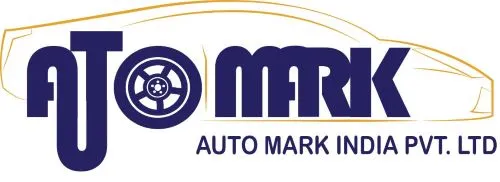



















































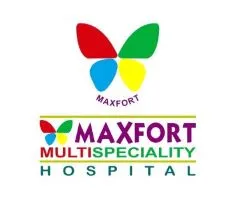











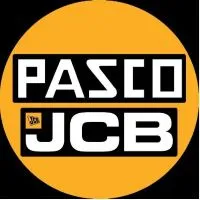









Salient Features
Concept to Commissioning
In-house team for Design. Engineering, Martufacturing, Execution and Service support gives full control over project ownership and quality
Experienced Team
Entire team possess average Industrial Experience of 7+ Year and have proven track record
Tailor Made Solutions
Our wide experience of solution design in multiple technologies enable us to choose technology that is most economical and efficient in long run.
Future Ready Products
Automation is the heart of every Awetech product. Our products performance can be monitored from remote location.
Life Cycle Management
We can take complete responsibility of product operation, maintenance, upgradation and comply latest pollution control board norms.
Comply Pollution Norms
Our design philosophy and documentation is in line with quidelines set by legal authorities. We provide support to take required approvals from pollution department
Awetech Works – The Leading Solution Provider of Effluent Treatment Plant (ETP) for Hospitals
Our Design Philosophy
Analyze & Inspect
"You cannot improve those things
which you can not evaluate”.
✓ Analyze Water or Waste Water
Parameters.
✓ Inspect site to check availability of
Space and utilities.
Understand Application
Our Sales professionals will take detailed note of your requirement & challenges. Factors like Future expansions, end use of Water and Water depletion rate plays a very important role product designing.
Technology Selection
" Wrong selection may save you some penny initially but take out far more during operation & maintenance”. Thus, technology selection considering the soaring prices of Electricity, Manpower, Space, chemical and consumables is essential.
Design & Manufacturing
As a standard procedure we first make to-the-scale 3D design of entire project with plumbing and other connections. After discussing it with client we starts manufacturing tailor made unit in our state-of-the-art facility.
Quality Inspection
Our Ever plant has to go through the stringent Quality test, where we test the strength of fabrication, Anti Corrosion coating, Dimensions, Water leakage test and product finishing.
ENQUIRE NOW
Served Locations
-
Uttar Pradesh (UP):
Kanpur; Lucknow; Ghaziabad; Agra; Varanasi & more… -
Madhya Pradesh (MP):
Indore; Bhopal; Jabalpur; Gwalior; Ujjain & more… -
Rajasthan:
Jaipur; Jodhpur; Kota; Bikaner; Ajmer & more… -
Jammu and Kashmir (J&K):
Srinagar; Jammu -
Gujarat:
Ahmedabad; Surat; Vadodara; Rajkot; Bhavnagar & more… -
Punjab:
Ludhiana; Amritsar; Jalandhar; Patiala; Bathinda & more… -
Delhi National Capital Region (NCR):
Delhi; Gurgaon (Gurugram); Noida; Faridabad; Ghaziabad & more… -
Maharashtra:
Mumbai; Pune; Nagpur; Thane; Nashik & more…


